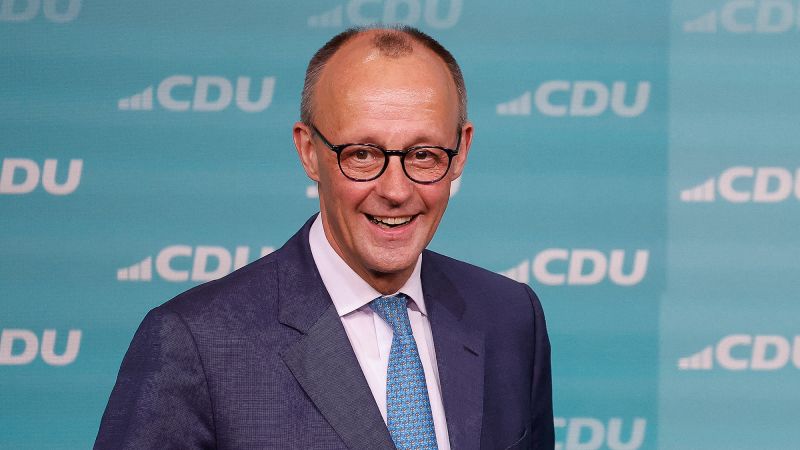
Germany’s major centrist parties have reached a coalition deal, amid mounting pressure to form a government as Europe’s largest economy teeters on the brink of recession after sweeping tariffs imposed by the Trump administration caused global turmoil.
Details of the coalition agreement remain unclear, and are set to be unveiled at a Berlin news conference at 9 a.m. ET.
Chancellor-in-waiting Friedrich Merz’s CDU party emerged victorious in February’s vote but failed to win a majority, with the far-right Alternative for Germany (AfD) surging into second place and almost doubling its supporter base.
Since then, the CDU/CSU have for weeks been locked in formal coalition talks with the SPD – Germany’s other main centrist party, which had led a three-way coalition government until its collapse in November 2024.
Pressure in Berlin to reach a deal had only mounted in the face of wider uncertainty, including the Trump administration’s introduction of sweeping import tariffs that have reshaped global trade. Merz has promised to revive Europe’s largest economy if he becomes chancellor, after years of uncharacteristic stagnation.
Continued mounting support for the AfD since the election also infused the talks with a sense of urgency. An Ipsos poll released Wednesday showed the far-right coming out on top for the first time, landing on 25%, ahead of the CDU on 24%.
“For the first time in the still-young history of the AfD, we are the strongest force in Germany. Thank you for your tremendous trust – the political change will come!” AfD co-leader Alice Weidel wrote in a post on X alongside the poll’s findings.
Merz has also pledged to boost the country’s defense spending, as Europe grapples with the threat from Russia and the US adopting a more hostile stance to European security. Berlin has reformed its so-called “debt brake” in order to loosen borrowing limits and allow for new investments in defense.
Merz has vowed to significantly tighten Germany’s immigration policies following a series of attacks perpetrated by migrants that catapulted the issue to the forefront of the 2025 election.

